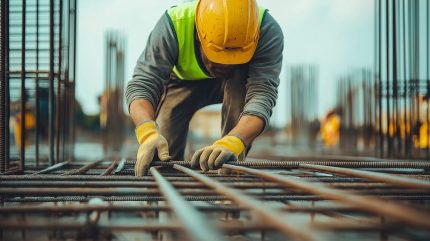
South Korea’s construction industry is expected to witness a wage increase of approximately 2% in the first half (H1) of 2025.
This forecast comes from the Korea Construction Association, which released data indicating the rise compared to the same period in 2024.
On 1 January 2025, the Korea Construction Association published findings from a September 2024 survey that spanned 2,000 construction sites.
The survey focused on five sectors and 132 job categories, including general construction, heritage preservation, and nuclear projects.
The anticipated average daily wage for H1 2025 is set at Won276,011, marking a 1.93% increase from Won270,789 in H1 2024.
This figure also represents a 0.63% rise from Won274,286 in the second half of 2024.
General construction jobs, which encompass 91 trades such as rebar work and plumbing, will witness a 2.29% wage increase to Won264,277 compared to H1 2024.
In contrast, optoelectronics jobs, the highest-paying category, will average Won430,013 per day in H1 2024, a 2.96% year-on-year increase.
Heritage preservation roles such as traditional carpentry and stone carving, will experience a modest 0.33% increase to Won322,178 compared to the latter half of 2024.
However, nuclear construction roles, including specialised welding and plant installation, will decrease by 2.17% to Won234,847 from the second half of 2024, although this figure would be a 1.95% increase from the first half of 2024.
The wage survey conducted by the Korea Construction Association is a twice-yearly exercise that establishes benchmarks for cost calculations in public and municipal construction projects.
In the first half of 2025, five new job categories such as traffic controllers and demolition workers, were included in the survey.



